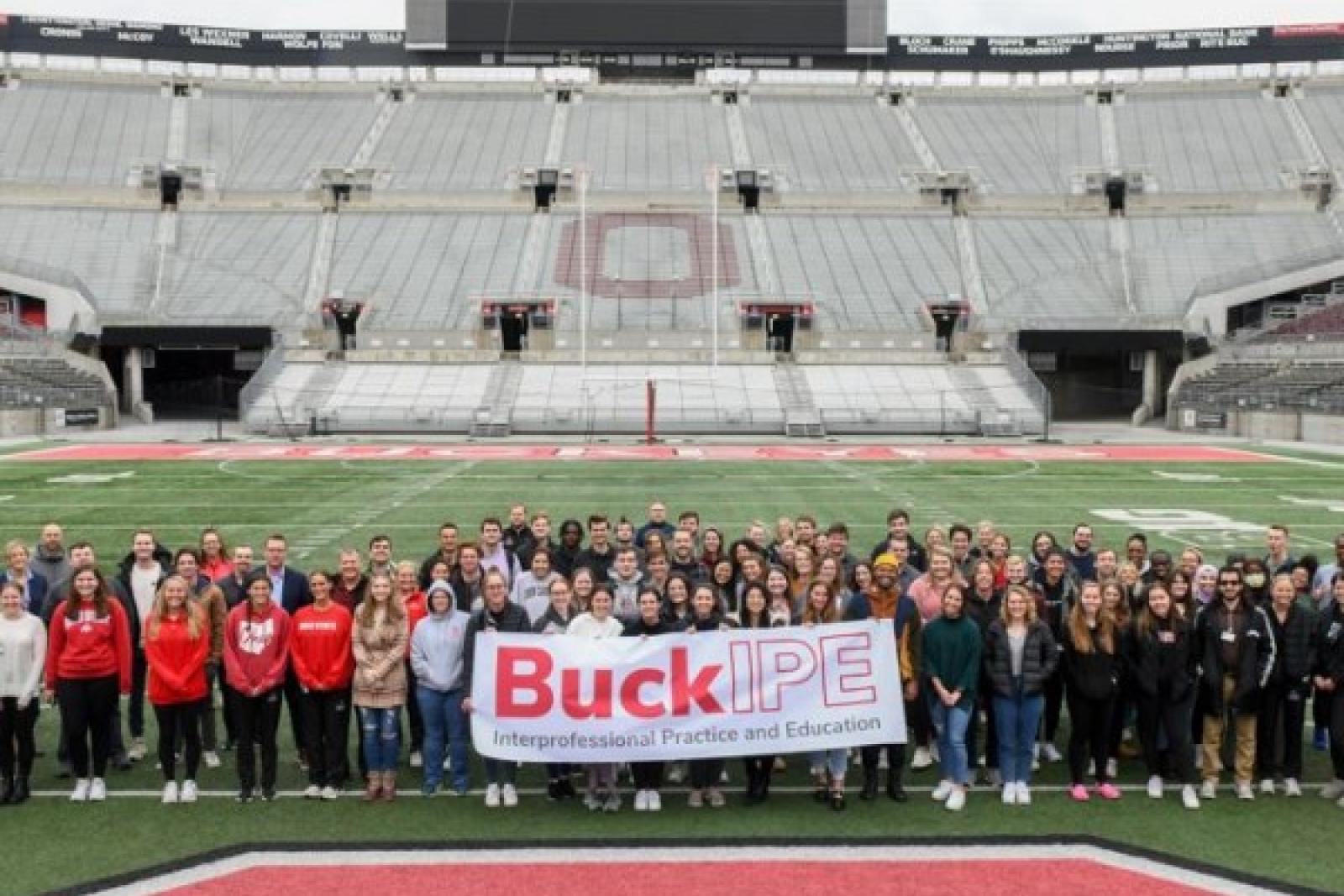Buck-IPE gives pharmacy students interprofessional collaboration experience on real-world issues

Buckeye Interprofessional Education (BuckIPE) is a longitudinal interprofessional curriculum at The Ohio State University that brings together students from two or more professions to learn about real-world issues that they will face as future professionals.
In addition to the College of Pharmacy, BuckIPE features six additional health science colleges: Dentistry, Medicine, Nursing, Optometry, Public Health and Veterinary Medicine; and two other colleges whose future graduates will play a vital role in patient care: Arts and Sciences and Social Work.
BuckIPE provides a unique opportunity for pharmacy students to build their interprofessional collaboration skills and learn how to deal with common issues in the health care industry, which will ultimately benefit their future patients’ health.
“These component skills, such as engaging in challenging conversations with their team, being comfortable speaking up and holding one another accountable, are important for them to practice,” said Alexa Valentino, PharmD, director of the BuckIPE curriculum at Ohio State and associate professor of pharmacy practice and science at the College of Pharmacy. “When we talk about interprofessional practice and collaboration, it really is a different skill set that students don’t recognize until they are here. This gives them an opportunity to practice it.”
Starting in their P1 year, PharmD students meet their interprofessional teams and learn the value of escaping silos and working together. Teams build their own ground rules and develop their communication practices.
During their P2 year, students begin collaborating on issues they will encounter in their future practices. The main topics for the P2 year include the opioid crisis and racism, two issues that can affect patient outcomes and how health care practitioners practice.
Students learn the coursework by grasping key definitions and mastering practices to eliminate disparities. The students are given a case study and are asked to apply what they learned to create the best outcome for the patients and the health care team.
During their P3 year, pharmacy students engage in a course with other health science students to treat patients in simulations and learn how members of the team contribute. They apply what they learned to their rotations in their P4 year.
BuckIPE offers additional electives for students interested in learning more about interprofessional practice. At the end of their coursework, students will have mastered the following five competencies of the full curriculum:
- Roles and responsibilities
- Apply one’s own role and those of other professions to address health care needs to improve health and health equity for all.
- Teams and teamwork
- Perform effectively in different team roles to deliver patient/client/population-centered care and health programs that are safe, timely, efficient, effective and equitable.
- Interprofessional communication
- Communicate in a responsive and responsible manner to support a team approach to the promotion and maintenance of health and the prevention and treatment of disease.
- Collaborative leadership
- Engage members of the interprofessional team, including patients, clients, families and communities in collaborative leadership.
- Evidence-based practice
- Utilize evidence to inform all aspects of interprofessional teamwork.
“Interprofessional education and collaboration is a core value of our college, and Dean Henry Mann has committed to this coursework,” said Jim McAuley, RPh, PhD, FAPhA, associate dean of academic affairs and professor of pharmacy education and innovation at the College of Pharmacy. “Drs. Valentino and Andrea Pfeifle have really built out the infrastructure to support the curriculum and see where it fits with other health colleges. The coursework will equip our students with much-needed education to thrive in the current and future health care conditions.”